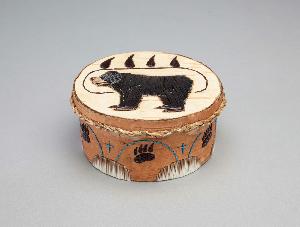William Parsons Winchester Dana
William Parsons Dana;William Parsons Winchester Dana
Place: Boston
Born: 1833
Death: 1927
Biography:
William Parsons Winchester Dana, an American artist born on February 18, 1833, in Boston, Massachusetts, is known for his small oil paintings on canvas. He settled in France and later emigrated to London, becoming a naturalized British subject. His paintings, generally small in size, were painted with oils on canvas in an anglicized tradition.
Early Life and Training
Dana's early life and training are not well-documented, but it is known that he was working as an artist in Boston by 1852. He traveled to France for further study by 1857, which had a significant impact on his artistic style. His transatlanticism influenced Monet and the French impressionists, whom he met in Paris and Normandy.
Artistic Style
Dana's artistic style is characterized by a highly personalized, naturalistic approach, intimate and affective of familiarity. He remained in the romantic vein of older painters from an earlier period, essentially conservative, but observant of minute detail. His oil paintings are known for their rich colors, depth, and glossy finish.
Notable Works
Some of Dana's notable works include Brittany Beach, which depicts a Breton laborer with horse and donkey carts harvesting seaweed for field fertilizer. This painting is now part of the Centennial One Object Exhibit at the Centennial One Object Exhibit (None, United States). Another notable work is his oil on canvas painting, which showcases his skill and technique.
- Oil paintings: Dana's oil paintings are known for their rich colors, depth, and glossy finish.
- Transatlanticism: Dana's transatlanticism influenced Monet and the French impressionists.
- Anglicized tradition: Dana's paintings were generally small, painted with oils on canvas in an anglicized tradition.
Legacy
Dana's legacy as an artist is still celebrated today. His paintings can be found in various museums and galleries, including the William Parsons Winchester Dana page on Wikioo.org. His Brittany Beach painting is a testament to his skill and technique as an artist. Dana passed away on April 8, 1927, leaving behind a legacy of beautiful oil paintings that continue to inspire artists and art enthusiasts alike. His transatlanticism and anglicized tradition have made him a notable figure in the art world.


